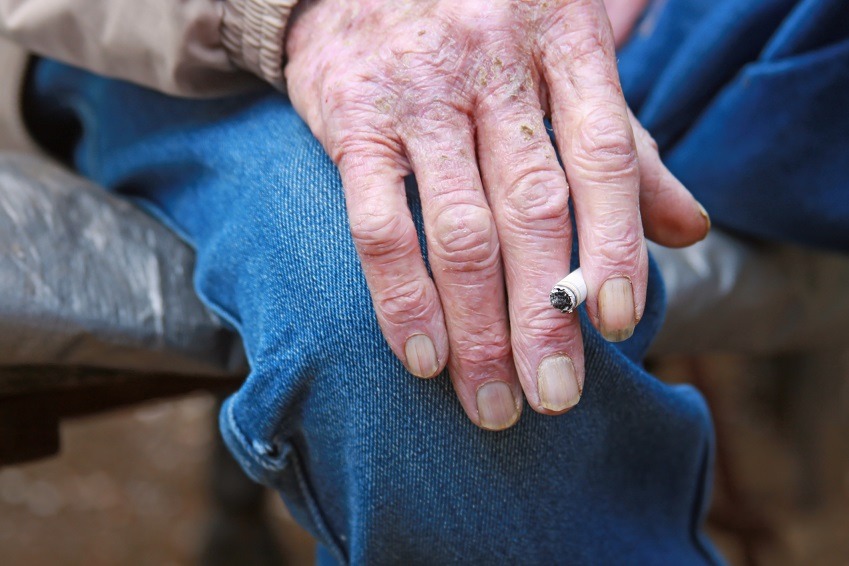 According to a new study presented at the 31st Annual Meeting of the North American Spine Society (NASS), tobacco use may harm the body’s healing response from surgery for cervical myelopathy based on number of cigarettes smoked over a lifetime.
According to a new study presented at the 31st Annual Meeting of the North American Spine Society (NASS), tobacco use may harm the body’s healing response from surgery for cervical myelopathy based on number of cigarettes smoked over a lifetime.
“While it is well-established that smoking compromises healing from spine surgery, this new study suggests that improvement is actually tobacco dosedependent,” says Alan S HIlibrand, an orthopaedic surgeon and 2016 NASS Annual Meeting Program Chair. “This study gives spine specialists important data to help them counsel patients to quit smoking as early as possible.”
The study, “The Effect of Smoking on Spinal Cord Healing Following Surgical Treatment for Cervical Myelopathy,” was selected as one of the “Best Papers” at the NASS meeting.
In this study, one surgeon’s 212 consecutive patients with cervical spondylotic myelopathy were categorized into two groups according to smoking status and stratified according to “pack years” and packs smoked per day. A pack year was defined as 20 cigarettes smoked every day for one year.
Each patient was assessed and given a pre- and postoperative Nurick scale rating, which grades a patient’s difficulty in walking, from zero to five, with five being most severe. Analysis was performed using simple linear regression and multiple regression controlling for age at presentation, sex, preoperative and postoperative Nurick score, duration of symptoms preoperatively, duration of follow-up, procedure performed, surgical approach, number of levels fused, diabetes status, cocaine use, ethanol use, preoperative magnetic resonance imaging signal change, and whether the patient belonged to the Veterans Administration.
Smoking status was not associated with a particular preoperative Nurick score. Univariate analysis demonstrated an impressive postoperative improvement in non-smokers of 1.53 points on the Nurick scale, compared with just 0.6 points in smokers (p<.001).
However, there was a progressive decrease in improvement as the number of pack years and packs per day increased (p<.001). There was a greater improvement in Nurick score with greater (worse) preoperative score but only in patients with fewer than 25 pack years.
“We found that tobacco use was directly correlated with decreased postoperative improvement in Nurick score,” says David Kusin, of the University of Nebraska Medical Center in Omaha, USA. “Specifically, the mean improvement in Nurick score was almost one point lower in smokers than in nonsmokers.”
Smoking history was not associated with a more severe preoperative condition, he says, which suggests that smoking may interfere with the intrinsic healing processes that occur in the spinal cord postoperatively, but may not be an important aetiology of cervical myelopathy.
“These data suggest that patients with cervical myelopathy who smoke are likely to have less improvement in their condition postoperatively, compared to those who do not smoke, and that the effect of each cigarette is additive,” Kusin says. “These findings reinforce the importance of counselling patients about smoking cessation prior to surgery.”













